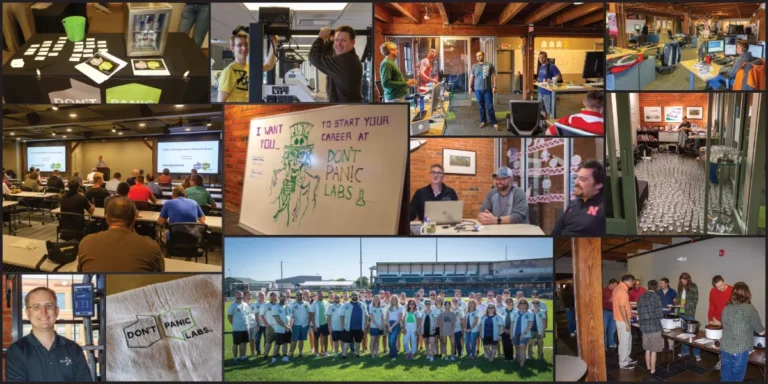
Introducing the Don’t Panic Labs Advanced Continuing Education Program
Businesses across the country have adjusted to the realities of our current environment. Don’t Panic Labs is no exception.
While our professional services business made adjustments to remote work rather quickly, continuing our Software Design and Development Clinics required some additional thought and effort. These classes were designed around in-person settings, so their structure needed to be adapted. Complicating this was the fact that we had several clinics scheduled to begin not long after our entire team went remote.
Fast forward a couple of months.
Not only did we adapt our clinics, we significantly enhanced their content and experience – so much so that we’re renaming our Clinics to Don’t Panic Labs Advanced Continuing Education for Software Professionals.
Here are the ways we’re changing the classes we provide to those already working in our industry.
Flexible Online Learning
Adapting to the current state of the world, our classes are now more accessible by using online video platforms and adopting some tools and processes that Chad Michel and I picked up while teaching at the University of Nebraska-Lincoln last spring.
We are now using a product from Instructure called Canvas, a leading learning management system (LMS) used by colleges and universities across the country (including the University of Nebraska). Canvas provides participants with easy access to the class content and enables us to facilitate more structured activities and interaction with the participants. It also gives the participants continued access to the artifacts after the class has been completed.
Our classes generally involve a 50/50 split between direct instruction and activities/discussions. Given the desire to limit the amount of time participants would be on live video calls, we decided to use a flipped classroom model. This approach allows us to develop a library of pre-recorded lectures for the direct instruction portion of our classes, which creates a couple of key benefits:
- it enables us to adjust the direct instruction portion of the class to happen in the form of pre-class preparation by the participants in advance of the live interactive video sessions
- participants can refer back to the videos at a later date (or watch them if they missed a class for some reason).
Flipping the classroom allows us to adjust the calendar as well. Traditionally, our Clinics would take place over a 40-hour week, which was often difficult for some organizations to accommodate. Our daily schedule involves about two hours of prep by the student (i.e., watching videos) and then a two-hour live Zoom call in which we complete activities and hold “face to face” discussions.
Classes can easily span two consecutive weeks with this new schedule, but it gives participants more time and flexibility for both their classwork and work-related projects.
More Modularized Topics
With the move to the flipped classroom model, we felt it was necessary to make our videos more bite-sized (typically 15-20 minute videos) to avoid “video fatigue.” This required us to further “decompose” our content, and it resulted in a more structured, modularized curriculum. At the same time, we were able to refine our activities to make them more bite-sized and enable more collaborative options. It has also resulted in making our content more relevant to other roles on development teams (e.g., Business Analysts, Project Managers, etc.).
Expanded Coverage of Software Engineering
As part of this transformation process, we have been able to expand the breadth of topics we cover, which means we are touching on more areas of the Software Engineering Body of Knowledge.
A La Carte Access
Our expanded, modularized, and scalable content allows us to offer a la carte options to organizations that wish to access subsets of our catalog. We have internally discussed the need for this over the last few years, and now we feel we have the content and tools to make this a reality.
Updated Pricing
Making the class more scalable means we can provide access at a lower price. We still strongly encourage multiple attendees from each organization and will continue to offer discounts for multiple attendees and dedicated company classes.
Individual: $2000/person
Multiple Individuals from an Organization: $1500/person
Dedicated Organizational Class (formerly On-Premise Training): $15,000 (up to 20 students)
A La Carte Content: Will quote
What’s Next?
This is the first major overhaul of our educational offerings since we began them in early 2017, and we’re very excited to watch how these improvements impact participants and organizations. While we were initially apprehensive about how well a virtual classroom would work in this context, our engagements over the past few months have yielded positive results way beyond our expectations.
Information and updates about our continuing education can be found at dontpaniclabs.com/education.



